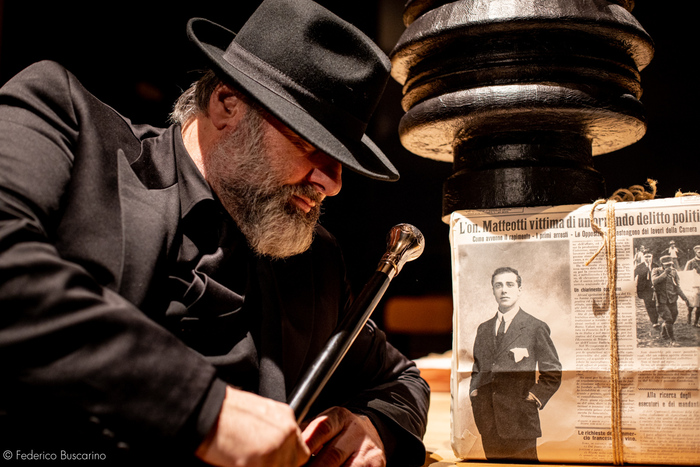It is June 10, 1924, a scorching sunny Tuesday.
On the Lungotevere Arnaldo da Brescia, in Rome, Giacomo Matteotti, a socialist deputy at the forefront of documenting and denouncing the illegalities committed by the nascent dictatorship of Benito Mussolini, is kidnapped and killed by a group of fascists under the command of Amerigo Dùmini.
His body was found only two months later.
One hundred years after the crime which could have marked a turning point in the history of the country, due to the popular indignation it raised, Maurizio Donadoni is today retracing the story of the 38-year-old anti-fascist, whose human story is inextricably intertwined with his political one. Matteotti Medley, theatrical documentary at the Oscar in Milan from 21 to 24 March and at the Basilica in Rome from 14 to 19 May, directed by Paolo Bignamini.
"Today there is no city that does not have a street or a square named after Matteotti", the actor tells ANSA, between the success of the new season of Lolita Lobosco and Shakespeare, the festival that will return to fill Bergamo with shows and verses of the Bard (26 July - 6 August).
"In fact - he says - in the toponymic ranking, in Italy Matteotti is fourth after Garibaldi, Mazzini and Dante. Yet few know his history.
I have been dealing with civil theater for some time. After the Vajont and the White Rose , I have been studying Matteotti for years. There is so much to tell, that at the end of the show I leave viewers a QR code to learn more. Matteotti was a man of letters, he loved rowing, he had bought a car already in 1914".
Why the story about him?
"First of all because the memory falters - he replies - And then, a phrase that comes to mind that he uttered shortly before his death: 'Every era has had its martyrs, its victims, the useless heroes who with their sacrifice, have opened the eyes and the way to others". Well, at Navalny's funeral the policemen threw away the flowers that people brought.
The same happened with Matteotti. Power declines more or less in the same ways, what interests me is the theme of prevarication, our attitude towards democracy, because, as Hannah Arendt says, totalitarianism is a shape-shifter: it pops up, you fight it, you think you have defeated it, but it snakes underground and reappears in other forms that you don't recognise".
On stage, therefore, Donadoni travels backwards through the historical, political and human story of the parliamentarian, opening a glimpse into the Italy (and the songs) of those years.
"What would I have done in his place? - he asks - Matteotti had a wife, Velia, whom he loved very much, and three young children. I am struck by his ability to throw his body into the fight. He was someone who spoke to young people, a radical reformist. And putting democracy at the center of one's thoughts, thinking that an opponent must always express his idea, even if you don't agree, is an important message. Mussolini, however, with him passed the point of no return."
Yes, Mussolini, did he know or not know about that murder?
"Historians have their answers - says Donadoni -. I wonder if Matteotti knew. His is the heroism of everyday life. Well, in the wake of Antonio Scurati's book, I could have called this show M, the other" .
Now the dream is to also take it to the places that belong to Matteotti's history.
"Minister Federzoni ordered his body to travel on a train at night, from Monterotondo to Fratta Polesine without touching Rome, escorted by one hundred Carabinieri, like a thief - he concludes -. Perhaps the Railways could give him one last trip, as his wife wanted and as they did for the Foibe: a train of the time, to pay homage to when passing through the stations".
Reproduction reserved © Copyright ANSA

